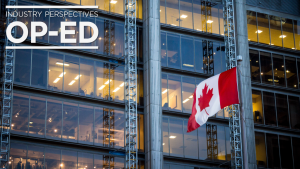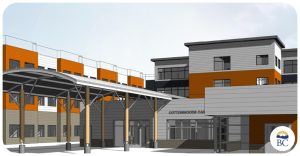Three global construction supply-chain specialists foresee major problems for niche sectors in a post-pandemic world but otherwise the building industry looks poised to move forward battered but unbroken.
The threesome discussed the numerous lessons learned during three months of COVID-19-caused chaos as part of an online panel charged with addressing the topic Construction Supply Chains in Disarray! When and How to Restart. The event was part of the Royal Institution of Chartered Surveyors (RICS) Insight Series and was focused on the U.S. market and beyond.
At this point, said Joe Piro, vice-president of supply chain for Rhode Island-based Gilbane Building Company, domestic supply chains for construction have been minimally disrupted and internationally there has not been major damage caused by interruptions in shipments of materials even from China, where the coronavirus originated.
“I am not saying there is no impact but there has been less impact than we anticipated,” Piro said.
Spot polls taken among participants viewing the April 27 panel event found that 70 per cent are optimistic about prospects for the construction sector coming out of the COVID-19 pandemic; 83 per cent agree or strongly agree the use of technology will significantly increase; and 90 per cent feel new infrastructure will be important in rebuilding the economy.
The panel was moderated by James Swanston, CEO of Voyage Control. The other two panellists were Denise Berger, COO of Aecom’s Northeast Region including New York, and Julian Anderson, president of Rider Levett Bucknall of Phoenix.
Supply chains aside, there is no denying the pandemic has significantly disrupted the construction sector in the U.S., the panellists said, but in some cases there have been breakthroughs from innovation that will be carried forward and even new opportunities.
Have a plan and be flexible is all I can say,
— Julian Anderson
Rider Levett Bucknall
Aecom’s workflow is proceeding reasonably well, Berger said, with lots of its staff able to be productive working from home offices.
“There were some projects that were paused but there were some projects that came out of the pandemic,” she said, such as emergency hospital builds and new testing facilities. Other projects Aecom has been working on were declared essential and were thus unaffected, she added.
The pinch point for the sector, Berger suggested, will be new protocols at jobsites. Health and safety is of prime importance but new regulations at the sites will cause delays.
Berger said agencies that draw a lot of their revenues from tolls and similar funding mechanisms are looking at scaling back on long-term capital plans. Aecom is heavily involved in projects with the Port Authority of New York and New Jersey, which had plans to spend $37 billion on projects over the next 10 years, but those plans are being re-evaluated now. There have been revenue shortfalls of 97 per cent in some transit agencies, she reported.
“We don’t know as an industry what projects will be moving forward,” said Berger.
Freight, however, is still moving well and is relatively unaffected by the pandemic.
Piro also said there will be many speedbumps to navigate but the sector may well enter a new wave of technological innovation. As an example, as cash flow becomes less predictable, he predicts Blockchain could become much more integrated into supply-chain costing and payments.
“That information-sharing from end to end is the future of supply-chain certainty,” said Piro.
He also predicted that technology that monitors jobsites would become more important, to ensure workers are safe.
Besides the blows the hospitality and airport construction sectors are taking, Anderson said, there will have to be major rethinking about the viability and design of entertainment venues such as stadiums and convention centres.
“We will have to seriously rethink getting people into those facilities,” he said.
That is looking ahead, Anderson explained — right now clients in the design business are still “shell-shocked” as they contemplate the damage caused by COVID-19.
The effects of the pandemic will be compounded, Anderson suggested, by general apprehension created by geopolitical upheaval in the U.S.
Restrictions on immigration and border crossings and the fallout from trade wars make for continuing uncertainty.
“The main thing is to have a plan. Base it on facts and have it so it can be changed very quickly,” he said.
“Have a plan and be flexible is all I can say.”
Follow the author on Twitter @DonWall_DCN.











Recent Comments
comments for this post are closed